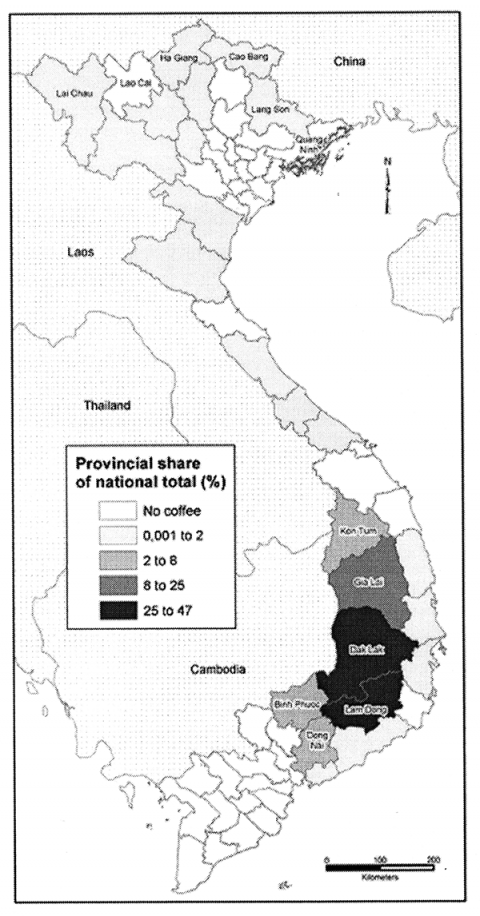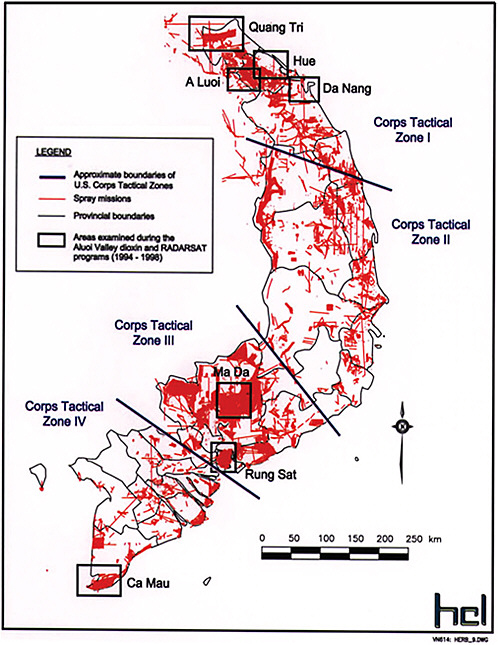No, there isn't a high level of dioxin in Vietnamese coffee, because dioxin does not accumulate sighificantly in plants. See INTAKE OF DIOXINS AND RELATED COMPOUNDS
FROM FOOD IN THE U.S. POPULATION, which shows dramaticly lower levels of dioxin in plant-derived foods compare to meat (including fish), eggs and milk.
PCDDs and PCDFs previously have been detected primarily in lipids
of animal origin, and are usually below detection limits in vegetables and
fruits
So, while there is some overlap between the coffee growing regions, and the war-time herbicide spraying, as can be seen below, it is unreasonable to expect high levels of dioxin in plant material. The main concern in the food supply in Vietnam is free range chicken meat and eggs, ducks, freshwater fish, snail and beef. See Environmental health risk assessment of dioxin in foods at the two most severe dioxin hot spots in Vietnam

Above image source

Anthony Wild states in The bitter cost of one nation's coffee boom as well as in his book Coffee: A Dark History
Indeed paranoia seems to be the order of the day, for information on the subject is very hard to gather. This is curious, because all the evidence would suggest that, since dioxin is not water soluble, it cannot be taken up by plants, including coffee. Nonetheless, the coffee trade is very nervous about the subject. The PEC group of coffee scientists looked at the issue in 2002 and reported that no problems had been found. Or rather, they are rumoured to have reported this conclusion, because "once it was established that there was no cause for concern, they didn't go public". The report was, in effect, unreported. This guardedness may be in turn a result of the persistent scaremongering in the US, where apparently - according to the National Coffee Association of America - a group of people have, for unknown reasons, been regularly feeding the dioxin in coffee story to the press. At one stage they even managed to start an entirely false rumour that the FDA had placed an embargo on Vietnamese coffee.


